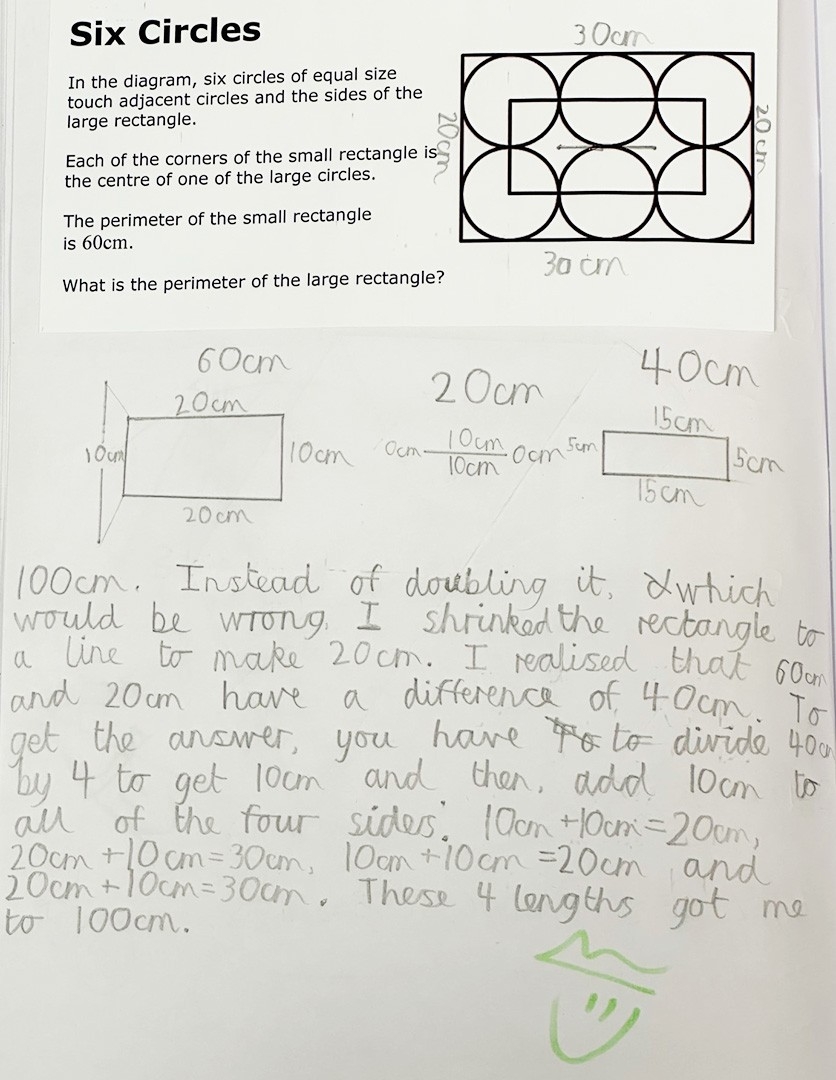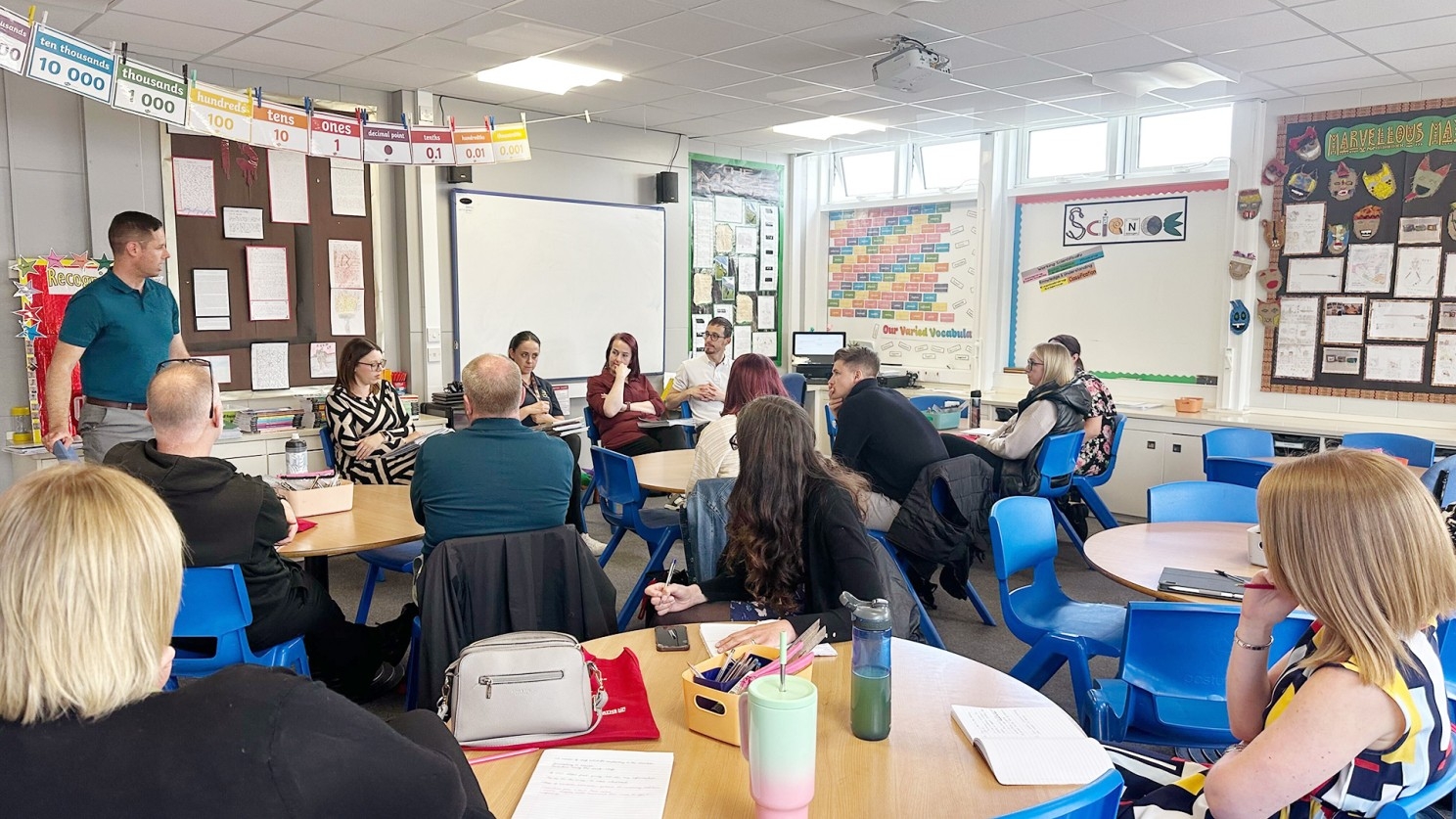Adapting a Maths Curriculum for pupils with SEND
Craig Robinson, one of the rising stars of our community, is Assistant Headteacher and Maths Subject Leader at Kingsley Primary School in Hartlepool, Northeast England. He’s been using Maths — No Problem! since 2017 with excellent results.
But that’s not to say it’s always been easy. Kingsley is a state school with about 500 pupils, one-fifth of whom are on the SEND register, adding an extra layer of complexity when it comes to following through on mastery principles.
When the school introduced the Maths — No Problem! Programme in 2017, Craig recounts, the principles of mastery weren’t yet embedded, which caused some obstacles in the early going. One of those principles was teaching the whole class the same objective, but differentiating during the lesson instead of before the lesson.
“Some teachers would say, ‘I can’t teach this lesson to my high achieving children and my struggling learners as well. It's not going to work.’”
Another hurdle was how teachers would address concerns from parents about the pace of the learning.
Craig identifies three ways Kingsley overcame the obstacles.
Number one was giving teachers time to trial the programme themselves and — equally importantly — offering support along the way. The key was “not avoiding it as a leader, making sure that we have those difficult conversations constantly and trying to answer difficult questions they had at the time.”
Second was modelling, to make sure teachers could see the lessons in practice, even with the children who struggled the most in the school.
Third, Craig says he was lucky enough to work with some teachers who had the vision straight away, and it wasn’t just him trying to impose something that only he believed in. He had support right from the start.
Even so, it wasn’t an easy or a short process. It took a couple of years before some teachers began to believe in the programme.
“You don’t get the max out of it until someone actually believes in it, and that belief took a while.”
Craig says since then, despite the fact that there has been some turnover among teachers, the staff quickly embrace the approach. “It doesn’t take long for anyone joining the team to work out this is how we do it here, and they accept it pretty soon after.”
Transform Your Maths Assessment
Insights — our online assessment tool — gives you instant, powerful data to identify gaps and improve results.

Likewise, he says it’s “easy now” to convince the school leadership to continue to invest in the programme, “because they can see the impact of it.” But it wasn’t easy at the start because it’s not something where you see the impact immediately, either in terms of results or of understanding.
“It’s something that everyone has got to be part of and believe in before it starts having an impact. That was difficult.”
He gives the example in the early days of the senior leadership covering a lesson, and there would still be kids counting on their fingers. “Leadership would say, ‘we’re doing Maths — No Problem! now, this shouldn’t be happening.’ So it was explaining that this isn’t something that will happen overnight.”
Craig points out that they’re seeing those types of things — counting on the fingers — much less frequently now, particularly through journalling. He says he makes a point of celebrating journalling throughout the school, and making it a constant PD priority. “I feel it’s the best way to demonstrate the understanding that the kids have.” This helps show pride in the children’s achievements and also shows everyone including leadership that the programme is working.

Year 6 pupil's maths journal
Now senior leaders can see that the children’s understanding of maths has been transformed — they’re much more confident in the way they answer questions and talk about maths, and this deeper understanding and greater fluency shows up in the KS2 SATS results. This has reinforced the leadership’s belief in Maths — No Problem! My headteacher says now, ‘It’s the first thing on the budget.’”
While having such a high proportion of learners on the SEND register means it can be difficult to stick with the mastery principles, the school has not only been able to manage but to flourish. “It’s a challenge but it’s also something we pride ourselves on — we’re able to adapt our curriculum for any need,” Craig says.
He also talks about the impact of Open Days, where outside teachers visit the school to see a mastery class in action. He recalls one time his school did a Year 6 lesson, where the teacher put the task up on the board — the task was on place value, adapted from a Maths — No Problem! textbook.
“The kids just talked about the maths for 40 minutes. The teacher obviously knew when to come in with the right question, and to get the right kids to sit next to each other, all those little tweaks were planned beforehand. But the adults afterwards said, ‘we can't believe that your kids could talk in that level of depth for 40 minutes. Our kids would have given up after five.’”

Visiting teachers discuss their lesson observations at Kingsley Primary School's Open Day
From Craig’s point of view, that experience encapsulates the difference between where they started on their Maths — No Problem! journey and where they are now. And they are applying what they’ve learned to other subjects besides maths.
What’s coming up in the immediate future? Craig says the projects he and his colleagues are working on now have come from networking with the Accredited Schools. He refers to visiting Three Bridges Primary, one of the original schools to begin using Maths — No Problem! and starting to work with the EYFS team there. He says his school is beginning work on rewriting its nursery curriculum from the Foundations curriculum and Reception.
Another project came from reaching out to Sandringham Primary, and working together on lesson study.
“So that's kind of the two big projects there that we're going to be focused on.”
Learn more about our Accredited Schools.
